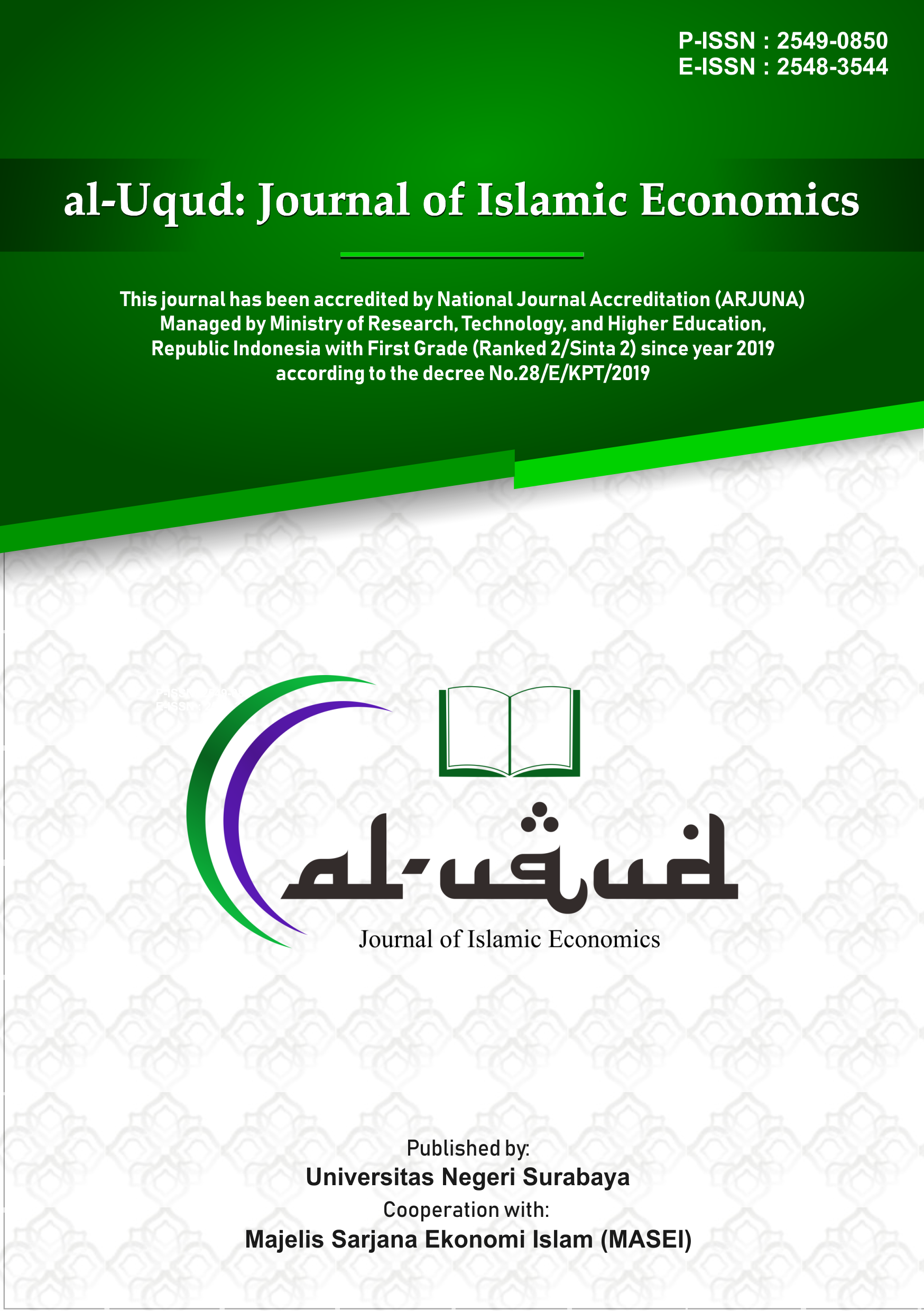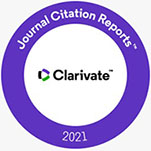Improving job performance in Islamic Universities through Islamic work ethics, spiritual values, and organisational commitment
DOI:
https://doi.org/10.26740/aluqud.v8n1.p14-28Keywords:
Islamic higher education, Islamic work ethics, Job performance, Organisational commitment, Spiritual valuesAbstract
According to organisational equilibrium theory, this research examines the role of organisational commitments in mediating Islamic work ethics and spiritual values on job performance in Islamic universities. This research used a sample frame of 93 lecturers from Islamic universities in Banjarmasin. Furthermore, the hypotheses were examined using SmartPLS version 3. The findings showed that organisational commitment successfully mediates the relationship between Islamic work ethic and spiritual values toward job performance. This result provides a better understanding of how the human resources department can explore motivation techniques to improve organisational outcomes, particularly organisational commitment. This research offers a significant advancement for organisational commitment research. This finding also attempts to make Islamic universities that encourage and manage their lecturers' performance becomes competitive universities in managing organisational culture.
References
Al-Douri, J. A., Aldabbagh, I., Mohammed, M. M., & Qawasmeh, R. A. A. (2020). The Impact of Islamic Work Ethics on Job Performance with Mediating Role of Intrinsic Motivation. Academy of Strategic Management Journal, 19(2).
Azeem, M., Ahmed, M., Haider, S., & Sajjad, M. (2021). Expanding competitive advantage through organizational culture, knowledge sharing and organizational innovation. Technology in Society, 66, 101635.
Benkarim, A., & Imbeau, D. (2021). Organizational commitment and lean sustainability: Literature review and directions for future research. Sustainability, 13(6), 3357.
Gazendam, H. W. M. (1997). The concept of equilibrium in organization theory. In G. Balint, B. Antala, C. Carty, J.-M. A. Mabieme, I. B. Amar, & A. Kaplanova (Eds.), Uniwersytet ?l?ski. Uniwersytet ?l?ski. Wydzia? Matematyki, Fizyki i Chemii. https://doi.org/10.2/JQUERY.MIN.JS
Hacio?lu, V., Do?an, H. B., & Akdemir, A. (2021). A Survey on the Economics of Nonprofit Organizations and Concepts of Organizational Equilibrium. An Interdisciplinary Approach to the Management of Organizations, 31.
Hair, J. H., Black, W. C., Babin, B. J., & Anderson, R. E. (2010). Multivariate Data Analysis. Pearson Prentice Hall.
March, J. G., & Simon, H. A. (1993). Organizations (Second). Blackwell.
SINTA - Science and Technology Index. (n.d.). Retrieved May 3, 2022, from https://sinta3.kemdikbud.go.id/
Ud Din, M., Khan, F., Khan, U., Kadarningsih, A., & Darmi Astuti, S. (2019). Effect Of Islamic Work Ethics On Job Performance: Mediating Role Of Intrinsic Motivation. IJIBE International Journal of Islamic Business Ethics, 4(2). https://doi.org/10.30659/ijibe.4.2.676-688
Yin, R. K. (2018). Case Study Research and Applications: Design and Methods (Sixth Edition). SAGE.
Zahrah, N., Norasyikin, S., Huda, S., & Akmal, B. (2016). The Relationship between Islamic Religiosity, Islamic Work Ethics and Job Performance. https://doi.org/10.15405/epsbs.2016.08.100
Zeb, A. (2020). Relationship between Organizational Factors and Job Performance.
Downloads
Published
How to Cite
Issue
Section
License
Copyright (c) 2024 The author(s)

This work is licensed under a Creative Commons Attribution 4.0 International License.
CC BY 4.0 Abstract views: 389
,
Abstract views: 389
, PDF Downloads: 498
PDF Downloads: 498








